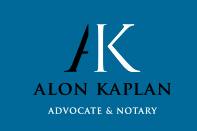
Family offices are essential in estate planning for affluent families, particularly in crafting wills and establishing trusts. They guarantee wealth is transferred smoothly across generations while adhering to international regulations. By setting up trusts, you can optimize tax benefits and protect assets from creditors. Family offices also help mediate family dynamics and plan for long-term legacies. Understanding these intricacies guarantees efficient wealth management, and diving deeper into this topic could provide even more insight.
Key Takeaways
- Family offices tailor estate plans, ensuring smooth intergenerational wealth transfer through wills and trusts.
- Trust structures provide asset protection, tax advantages, and privacy for high-net-worth families.
- Wills clarify inheritance intentions, reducing disputes and ensuring compliance with local inheritance laws.
- Family offices manage wealth, mitigate dissipation risks, and adapt strategies for effective trust management.
- Regular reviews and professional guidance help align trust structures with evolving family dynamics and regulatory changes.
Understanding the Role of Family Offices in Estate Planning

Family offices play an essential role in estate planning for ultra-high-net-worth families by developing and implementing tailored plans that guarantee smooth intergenerational wealth transfer. You can rely on them to organize assets meticulously, draft wills, and establish trusts. These actions assure your family’s wealth moves seamlessly across generations.
By leveraging their legal expertise, family offices guarantee compliance with local, national, and international regulations, making them indispensable in estate planning. They create robust asset protection mechanisms, including irrevocable trusts and generation-skipping trusts, to minimize estate taxes and protect against creditor claims. Family offices are also adept at addressing the management and transfer of digital assets, ensuring that cryptocurrencies and other digital properties are securely and efficiently handled. Additionally, family offices can utilize blind trusts to avoid conflicts of interest for family members in public office, ensuring ethical management of family wealth.
Furthermore, family offices address family dynamics by educating members about their roles and responsibilities, reducing potential conflicts during wealth transfer processes. This thorough approach underscores their critical function in estate planning.
Key Elements of Wills in the Israeli Legal Framework
When planning your estate within the Israeli legal framework, understanding the key elements of wills is essential. Ensuring will validity is vital to avoid inheritance disputes. There are several types of wills in Israel: handwritten, witnessed, and oral. Handwritten wills need your signature and date, while witnessed wills require two unrelated witnesses to sign and provide their details. Wills made in the presence of an authority offer an additional layer of security, as they must be signed and authorized by an official such as a judge or notary. Legal documentation should adhere to specific formats, and expert guidance can help prevent errors that might invalidate your will. Compliance with the Inheritance Law of 1965 is necessary for enforceability. Challenges such as lack of mental capacity or undue influence might arise, often requiring court intervention. A well-prepared will can streamline the probate process, ensuring your wishes are honored. Alon Kaplan’s expertise in trust law is widely recognized, making his firm a valuable resource for navigating complex estate planning matters in Israel.
Trust Structures and Their Benefits in Israel

Understanding trust structures and their benefits within the Israeli legal framework is essential for effective estate planning.
Trusts in Israel offer significant advantages, especially in trust taxation and asset protection. By structuring trusts as “Israeli Settlor Foreign Beneficiary Trusts,” you can avoid automatic taxation. Trusts also shield assets from creditors, providing a protective barrier against lawsuits and marital disputes. Furthermore, maintaining a Foreign Residents Trust can be beneficial as it provides tax exemption for income generated outside of Israel, allowing for strategic financial planning. Development of Trusts in Israel has been influenced by historical and legislative contexts, which enhance the appeal of using trusts for both local and international beneficiaries.
Israeli trusts offer tax benefits and asset protection, shielding against creditors and legal disputes.
Additionally, tax treaties between Israel and other countries help prevent double taxation, enhancing the appeal of trusts for international beneficiaries. The privacy offered by trusts guarantees that asset ownership remains confidential.
- Tax Exemptions: New immigrants enjoy a 10-year tax exemption.
- Tax-Deferred Structures: Taxes are deferred until distribution.
- Asset Shielding: Protects assets legally.
- Privacy: Conceals ownership.
- International Treaties: Prevents double taxation.
Navigating Inheritance Laws for Effective Wealth Transfer
While trust structures offer numerous benefits under Israeli law, particularly regarding asset protection and privacy, understanding inheritance laws is equally important for effective wealth transfer. Inheritance strategies must consider jurisdictional variations impacting asset distribution post-death. You have two main options: lifetime gifting or inheritance through wills. Wills clarify your intentions, reducing potential estate disputes. However, legislative changes, like the 2025 tax exemption sunset, demand proactive planning to minimize tax liabilities. Utilizing annual gift exclusions up to $19,000 per person can preserve your lifetime exemption. Legal instruments, such as beneficiary designations, help bypass probate, ensuring smoother asset transfer. Regularly update your estate plan to reflect life changes, and consult legal counsel to navigate complex, multi-jurisdictional inheritance laws effectively. Consulting financial and estate planning professionals early can provide valuable guidance in maximizing the benefits of your inheritance strategy. The extensive activity of firms like Alon Kaplan in Europe can provide crucial insights and support in handling cross-border legal issues and international business activities.
Strategies for Tax Optimization in Estate Planning

To effectively optimize taxes in estate planning, it’s vital to implement strategic approaches that minimize liabilities while preserving wealth.
Utilizing the gift tax exclusions and exemptions is significant. You can gift up to $19,000 per recipient annually, reducing your taxable estate. By combining this with the lifetime gift tax exemption of $13.99 million, large transfers can be made without immediate tax consequences. Given that estate planning is essential for controlling legacy upon death or incapacitation, regularly reviewing your strategy ensures that your plan remains aligned with your wishes. Trust strategies offer another avenue for tax efficiency. Trusts like GRATs and SLATs can shift assets out of your estate, retaining control and tax benefits. Monitoring legislative changes guarantees your strategies remain effective. In Israel, trust protectors play a crucial role in overseeing trusts to ensure they adhere to the settlor’s intentions and provide an additional layer of security for beneficiaries.
Gift up to $19,000 per person annually, leveraging the $13.99 million lifetime exemption for tax-efficient estate transfers.
- Gift annually up to $19,000 per recipient
- Use lifetime gift tax exemption strategically
- Implement trust strategies for asset protection
- Incorporate flexibility in trusts for future changes
- Regularly review and adjust your plan
Establishing Private Trust Companies for Family Governance
Although establishing a Private Trust Company (PTC) may seem complex, it offers a strategic advantage for families seeking greater control over their wealth management and governance.
By creating a PTC, you can manage your family trusts without relying on external trustees, ensuring privacy and confidentiality. These private trusts are legal entities that allow you to define management, beneficiaries, and asset distribution protocols through formal documents. A PTC provides a permanent structure for trust asset management, involving family members and trusted advisors.
A Board of Managers or Directors oversees operations, while specialized committees handle investment and distribution tasks. This structure enhances family governance by centralizing control, improving oversight, and tailoring wealth management to meet specific family goals.
Additionally, you can choose a jurisdiction that optimizes legal and regulatory benefits, ensuring efficient and compliant operations.
Addressing Family Dynamics in Wealth Management

Steering family dynamics in wealth management is essential for maintaining harmony and ensuring effective decision-making. Guiding family conversations about wealth, especially when emotional dynamics are involved, requires care and planning. Unplanned discussions, which 78% of families experience, often lead to regret for 26% of them, highlighting the importance of structured dialogue. The achievement of FedRAMP High authorization by Horizon3.ai underscores the importance of meeting high compliance standards, which can serve as a metaphor for the rigorous planning needed in family wealth discussions. Family conflicts can arise from diverse generational attitudes, as different experiences shape views on wealth. To address these challenges, consider the following:
Guiding family wealth conversations demands careful planning to maintain harmony and effective decision-making.
- Plan Family Conversations: Avoid spontaneous discussions to reduce stress.
- Engage Professional Guidance: Consultants can help manage complex family dynamics.
- Acknowledge Emotional Ties: Recognize how wealth connects to personal and collective histories.
- Encourage Open Dialogue: Foster communication to bridge generational divides.
- Understand Generational Perspectives: Recognize differing views on wealth’s role in family identity.
Long-Term Legacy Preservation Through Strategic Planning
When it comes to securing a family’s legacy for future generations, strategic planning plays a pivotal role in guaranteeing that wealth and values are preserved over time.
Legacy planning requires strategic foresight, incorporating diversified investments like hedge funds and real estate to mitigate risks and foster long-term growth. Balanced asset allocation, alongside modern investment tools, guarantees that your portfolio remains competitive. Strong governance frameworks and expert team assembly are essential for maintaining regulatory compliance and operational efficiency. Integrating philanthropic frameworks aligns charitable giving with family values, while legacy storytelling preserves cultural heritage. Documented processes and digital platforms streamline knowledge transfer, guaranteeing seamless collaboration across generations. Continuous monitoring assesses the effectiveness of these strategies, assuring enduring legacy preservation. Family offices manage and safeguard wealth for affluent families, addressing pressures to preserve wealth across generations and providing support to defy the trend of wealth dissipation.
Frequently Asked Questions
How Do Family Offices Handle Digital Assets in Estate Planning?
You handle digital asset management in estate planning by creating a detailed inventory of all digital assets, including cryptocurrency considerations.
Document each asset’s access details and guarantee legal authorization for successors. Implement secure storage for access information and comply with legal frameworks like RUFADAA.
Develop strategies for managing and protecting digital assets, considering potential tax implications.
Seek professional advice to guarantee accurate handling and seamless shift of digital assets in your estate plan.
What Is the Role of Insurance in Family Office Estate Planning?
Why is insurance essential in family office estate planning? It plays an important role by offering financial protection and guaranteeing liquidity.
Different insurance types, such as life and indemnity insurance, help manage risk by covering debts, estate taxes, and operational risks.
Directors & Officers insurance protects against legal claims.
How Do Family Offices Approach International Estate Planning?
Family offices tackle international estate planning by addressing cross-border complexities and tax implications.
You must consider diverse tax laws and regulations in different countries to guarantee compliance and optimize asset distribution.
Tailored strategies, involving legal and tax experts, help navigate these challenges. By using tools like tax treaties and credits, you can mitigate double taxation.
Additionally, strategic entity use, such as private foundations, supports effective asset management and philanthropic goals.
What Are the Common Misconceptions About Wills and Trusts?
When considering wills myths and trust misunderstandings, you might think wills only express final wishes, which isn’t true—wills also name guardians for minors.
It’s a misconception that wills avoid probate; they don’t. Trusts aren’t just for the wealthy; they manage assets during incapacitation and bypass probate for certain assets.
Estate planning isn’t solely about wealth; it includes personal and family considerations, benefiting individuals at any life stage.
How Can Family Offices Assist With Charitable Remainder Trusts?
When it comes to charitable giving, family offices can help you manage charitable remainder trusts by guaranteeing your trust runs like clockwork.
They’ll guide you in structuring the trust to maximize tax benefits and oversee compliance with IRS regulations. By advising on asset transfers and selecting beneficiaries, they guarantee your philanthropic goals align with family objectives.
Additionally, they manage trust investments and distributions, guaranteeing smooth operation and effective trust management throughout the trust’s life.
Conclusion
In estate planning, family offices play an essential role in managing wealth, ensuring effective wealth transfer, and preserving legacies. In Israel, over 60% of wealthy families utilize trusts to optimize tax benefits and navigate complex inheritance laws. By establishing private trust companies, you can enhance family governance and address potential family dynamics. Strategic planning is vital for long-term legacy preservation, offering a structured approach to safeguarding assets and ensuring your family’s financial future remains secure and prosperous.

